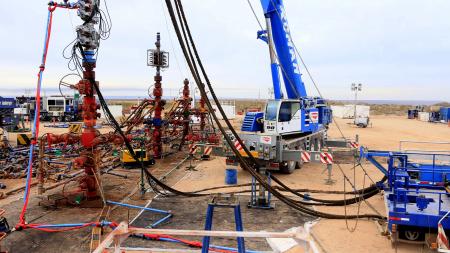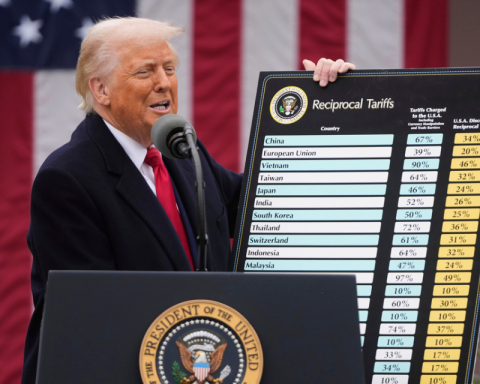Oil-petrochemical exports grew 78.5% last year to US$9,297 million, which allowed this complex to position itself as the third most important in foreign sales, behind soybean and corn, reported Thursday the National Institute of Statistics and Censuses (Indec).
Beyond this noticeable improvement, driven essentially by Vaca Muerta, the soybean complex continued to lead exports in Argentina in 2022 with an amount of US$24,868 million, although its participation in total sales was reduced by 2 percentage points compared to the previous year. , going from 30.6% in 2021 to 28.6%.
The corn complex, for its part, remained in second place with a year-on-year increase of 2.7% and a billing of US$9,549 million, but it also cut its share by 1.1 percentage points to 10.8%.

Next came the oil-petrochemical industry with a year-on-year increase of 78.5%, which allowed it to reach US$9,297 million and obtain a 10.5% share of total exports, thus displacing the automotive complex to fourth place, which with US Ch$8,678 million (+22.2% year-on-year) had a participation of 9.8%.
According to a recent report from the Argentine Institute of Energy (IAE), as of 2017 “energy exports are showing a tendency to grow”, with oil companies having a 44.2% year-on-year jump last year, strongly driven by the Dead Cow growth.
“The Neuquén basin -where the shale oil deposits are located- currently represents 59% of the total national oil production,” the IAE document highlighted.

As reported by INDEC, the fifth and sixth place in terms of exports in 2022 were occupied by wheat complexes (US$4,724 million), and bovine meat and leather (US$4,268 million), with year-on-year increases of 35.4%. and 18.3% and shares of 5.3% and 4.8%, respectively.
In 2021 the locations of these last two complexes were reversed, with bovine meat and leather above wheat.
Together, the six main complexes accounted for 69.3% of total sales abroad.
Meanwhile, the Gold and Silver complex remained in seventh place, with a year-on-year increase in its sales of 1.8% to US$2,959 million and a decrease in its participation of 0.4 percentage points compared to 2021.
Then, the sunflower displaced the fishing sector from eighth place and positioned it in ninth place, while the Barley complex ranked tenth to the detriment of the dairy complex (11th).

The numbers come from the Technical Report on Export Complexes prepared by INDEC, which classifies Argentine exports from the point of view of production chains.
In 2022, among the ten main complexes, the ones that grew the most were: oil-petrochemical (78.5%), barley (70.5%), sunflower (41.8%) and wheat (35.4%).
The Report carried out by the Statistical Institute reveals 40 export complexes, of which 27 ended with year-on-year increases in 2022. The thirteen that ended with falls were fishing, peanuts, grapes, forestry, textiles, beans, pears and apples, rice, rest of the fruit sector, garlic, citrus except lemon, blueberries and the like, other metallic minerals, and lead.

In relation to the countries of destination of the products, in the case of soybeans, the main ones were India for US$3,184 million (-6.2% annual), China for US$3,082 million (+28.8%) and the Netherlands for US$2,127 million (+25.8%).
Regarding corn, the main purchases were monopolized by Vietnam for US$1,361 million (-10.8%), South Korea with US$1,299 million (+11.2%) and Peru for US$830 million (+24.1%).
For their part, the United States, Brazil and Chile were the main partners for the oil-petrochemical hub, with year-on-year increases of 138%, 61.7% and 133.9%, respectively.
In the measurement by sectors, the oilseed (which groups together the complexes of soybeans, peanuts, flour, pellets, beans and soybean oil, biodiesel, sunflower and others) represented 31.6% of the country’s total exports, followed by by the cereal sector (corn, wheat, barley and rice) with 18.2%, the oil-petrochemical sector (10.5%), and the automotive industry (9.8%).

















